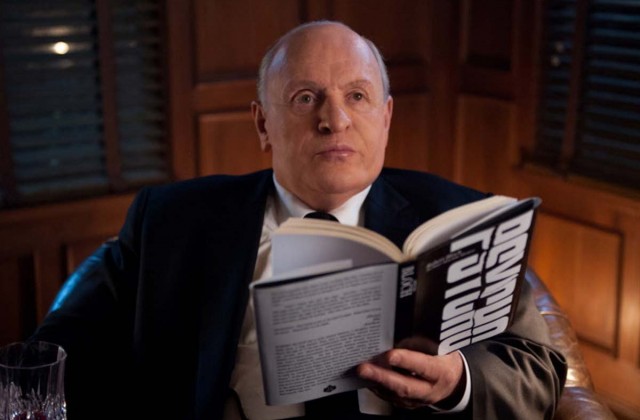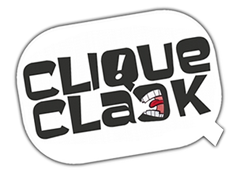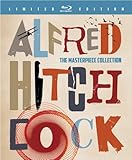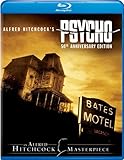Hitchcock makes for a “good evening” at the movies

The new biopic ‘Hitchcock’ takes voyeurs … um, viewers on a behind-the-scenes look at the making of ‘Psycho,’ and looks a little deeper into the life of the Master of Suspense.
Alfred Hitchcock was known as “The Master of Suspense” because of his career directing a long list of thrillers – some serious, some humorous – that really began in his native England with The Lodger and continued after his arrival in America with such classics to his credit as Rebecca, Strangers on a Train, Shadow of a Doubt, Lifeboat, Spellbound, Dial M for Murder, Rear Window, and Vertigo. Today, Vertigo is considered a classic and was recently named the greatest motion picture of all time by Sight & Sound magazine, displacing Citizen Kane for the first time. But in 1959, Vertigo was a massive flop and Hitch was desperate to find his next project, something smaller, quick and dirty, to help him – and his studio, Paramount – recover from that box office disaster.
In the new film Hitchcock, based on the book Alfred Hitchcock and the Making of “Psycho,” we learn that the next picture Hitch wants to make is, indeed, Psycho, based on the novel by Robert Bloch that was in turn inspired by the true life case of Ed Gein (who was also the inspiration for The Texas Chainsaw Massacre). No one but Hitch thinks this is a good idea, for a director of his stature to degrade his reputation by making a tawdry horror film. Paramount head Barney Balaban (actor Bob’s father) is adamant that the studio will not fund such a film, so Hitch and his agent (Lew Wasserman, who went on to head Universal Studios, Hitchcock’s home after his tenure at Paramount ended) concoct a plan to finance the film by mortgaging the Hitchcock home, much to the dismay but with grudging support from Hitchcock’s wife and creative muse, Alma.
Like the recent Lincoln, Hitchcock only focuses on a small part of the director’s life: the struggle to get Psycho made with opposition from all sides (a recent HBO movie featured the making of The Birds and Hitch’s relationship with star Tippi Hedren, and was a much darker affair). Against all odds, Hitch got his film into production with Paramount handling distribution, and seeing these parts of the behind-the-scenes drama is very interesting for any fan of the actual movie. The rest of the film focuses on Hitch and Alma’s rocky but rock steady relationship – he always feared she was cheating on him emotionally and professionally, while she had good reason to be fed up with his continuing infatuations with his often blonde leading ladies. But through it all, they really demonstrated what that modern phrase “you complete me” really means; without Alma by his side, polishing his scripts, keeping him and sometimes his actors on track, he may not have had the success he had.
The cast of Hitchcock is outstanding, and I would be surprised if Anthony Hopkins did not receive an Oscar nomination for his performance. Some reviews have said that he sounds nothing like Hitchcock, but from the moment he opened his mouth, I was sold. It may not be 100% accurate on the tone, but it’s very close, and the make-up is pretty amazing as well. Helen Mirren delivers another terrific performance as the fiercely strong and independent Alma, although I don’t think the real Alma was anywhere near as sexy as Mirren. Scarlett Johansson does a nice job as Janet Leigh, but when she first comes on screen, I saw more Kim Novak than Leigh. Jessica Biel appears as Vera Miles, but I failed to see any resemblance to the real actress. I enjoyed Michael Stuhlbarg (Men in Black 3) as Wasserman because he had great chemistry with Hopkins, and an almost unrecognizable Toni Collette as Hitch’s faithful assistant Peggy Robertson. But besides Hopkins and Mirren, I have to rave about James D’Arcy’s performance as Anthony Perkins. He’s only on screen for ten minutes, tops, but I could not stop thinking about him and wanted to see much more. He truly nailed the actor, and someone needs to get D’Arcy under contract ASAP to do a full blown Perkins biopic. He was that good. Given more screen time, he certainly could have earned a Best Supporting Actor Oscar nomination … but Judi Densch won for her five minutes in Shakespeare in Love, so I guess anything is possible.
Hitchcock may not delve too deeply into the life of the director, but it does provide a look into his life during one particular period. Even if you don’t know how closely he and Alma worked together over the years (she was that proverbial great woman standing behind a great man), the film gives you enough of their lives at this time to see how they really needed each other. If you’re a fan of Psycho – and if you haven’t seen it, by all means make the effort (just avoid the horrid remake) – you’ll get a thrill from seeing what went in to the making of the film. I personally would like to have seen more, especially considering actors were cast as Martin Balsam (Psycho‘s Arbogast) and graphic designer Saul Bass, who did the film’s iconic opening titles, but they were nowhere to be seen in the final film (here’s hoping for a director’s cut or deleted scenes on the eventual video release). As it stands, Hitchcock portrays its subject, warts and all, through some rose-colored glasses (whereas HBO’s The Girl is more of a poison pen letter), but it is all based on facts compiled by author Stephen Rebello through interviews with the man himself and many of those connected to Psycho, and I enjoyed it immensely.
 CliqueClack
CliqueClack











Read what Hitchcock’s co-workers have to say:
save Hitchcock from BBC’s THE GIRL https://wp.me/2OfqE